Thought for the Day – 13 December – The Memorial of St Lucy (c 283-304) Martyr “Bringer of Light”
Every little girl named Lucy must bite her tongue in disappointment, when she first tries to find out, what there is to know about her patron saint. The older books, will have a lengthy paragraph, detailing a small number of traditions. Newer books, will have a lengthy paragraph, showing that there is little basis in history for these traditions. The single fact survives, that a disappointed suitor accused Lucy of being a Christian and she was executed in Syracuse, Sicily, in the year 304. But it is also true, that her name is mentioned in the First Eucharistic Prayer, geographical places are named after her, a popular song has her name as its title and down through the centuries, many thousands of little girls, have been proud of the name Lucy.
One can easily imagine what a young Christian woman had to contend with in pagan Sicily in the year 300. If you have trouble imagining, just glance at today’s pleasure-at-all-costs world and the barriers it presents against leading a good Christian life.
Her friends must have wondered aloud about this hero of Lucy’s, an obscure itinerant preacher in a far-off captive nation that had been destroyed more than 200 years before. Once a carpenter, He had been crucified by the Romans after His own people turned Him over to their authority. Lucy believed with her whole soul that this man had risen from the dead. Heaven had put a stamp on all He said and did. To give witness to her faith she had made a vow of virginity.
What a hubbub this caused among her pagan friends! The kindlier ones just thought her a little strange. To be pure before marriage was an ancient Roman ideal, rarely found but not to be condemned. To exclude marriage altogether, however, was too much. She must have something sinister to hide, the tongues wagged.
Lucy knew of the heroism of earlier virgin martyrs. She remained faithful to their example and to the example of the carpenter, whom she knew to be the Son of God. She is the patroness of eyesight.
If you are a little girl named Lucy, you need not bite your tongue in disappointment. Your patron is a genuine authentic heroine, first class, an abiding inspiration for you and for all Christians. The moral courage of the young Sicilian Martyr shines forth as a guiding light, just as bright for today’s youth as it was in 304.
Saint Lucy’s name (Lucia in Latin) shares the root luc with the Latin word for light, lux. Because of this connection, Saint Lucy is often depicted in art and religious custom as a bringer of light – which also ties in to her patronage of eyes and sight. Her feast day today, is during Advent when we await the Light of Christ and is in winter, for the Northern Hemisphere, so there is significant iconography of Lucy as a bringer of light in the darkness. For this reason, she is particularly venerated as part of Scandinavian Christian custom – young girls dress in a white gown and wear wreaths of lights during celebrations in the darkest days of winter. Indeed, the fact that Saint Lucy’s feast day is celebrated as a festival of light, seems appropriate for a woman, who believed, she was bearing the light of Christianity in a world that punished her for it. Let us pray to St Lucy, for the intercession for all those with eye illnesses and for the protection of the ‘eyes of our faith’ of all of us.
O St Lucy, you preferred to let your eyes be torn out
instead of denying the faith
and defiling your soul
and God, through an extraordinary miracle,
replaced them with another pair of sound and perfect eyes
to reward your virtue and faith,
appointing you as the protector against eye diseases.
I come to you for you to protect my eyesight
and to heal the illness in my eyes.
O St Lucy, preserve the light of my eyes
so that I may see the beauties of creation,
the glow of the sun,
the colour of the flowers
and the smile of children.
Preserve also the eyes of my soul,
the faith, through which I can know my God,
understand His teachings,
recognise His love for me
and never miss the road that leads me
to where you, St Lucy,
can be found in the company of the angels and saints.
St Lucy, protect my eyes and preserve my faith.
Amen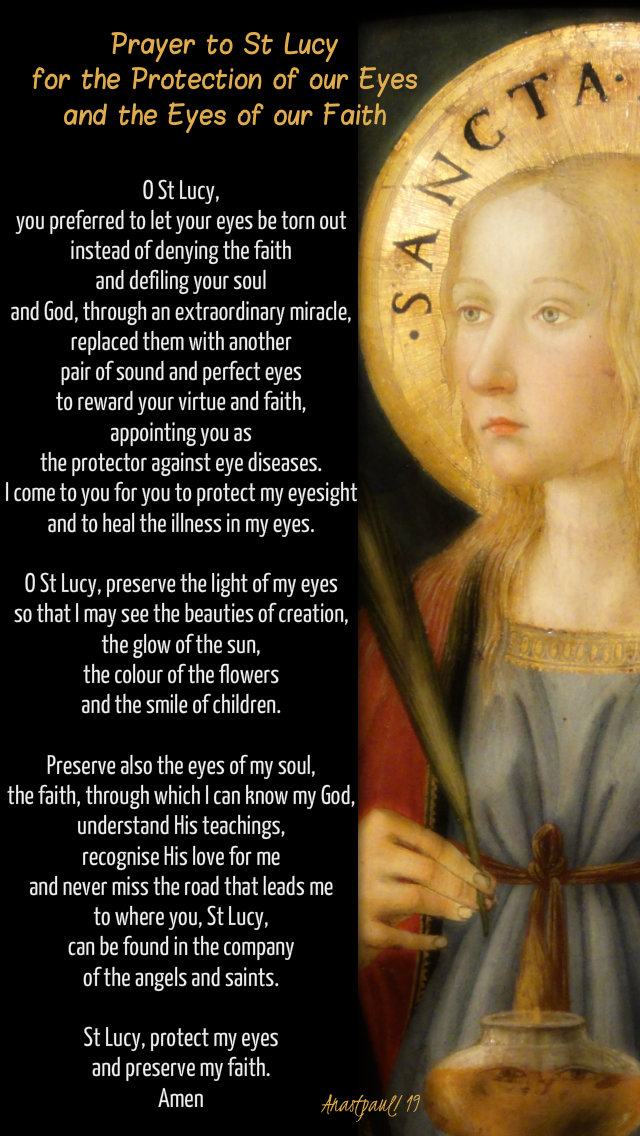
St Lucy, “Bringer of Light” Pray for those with eye ailments,
Pray for us all!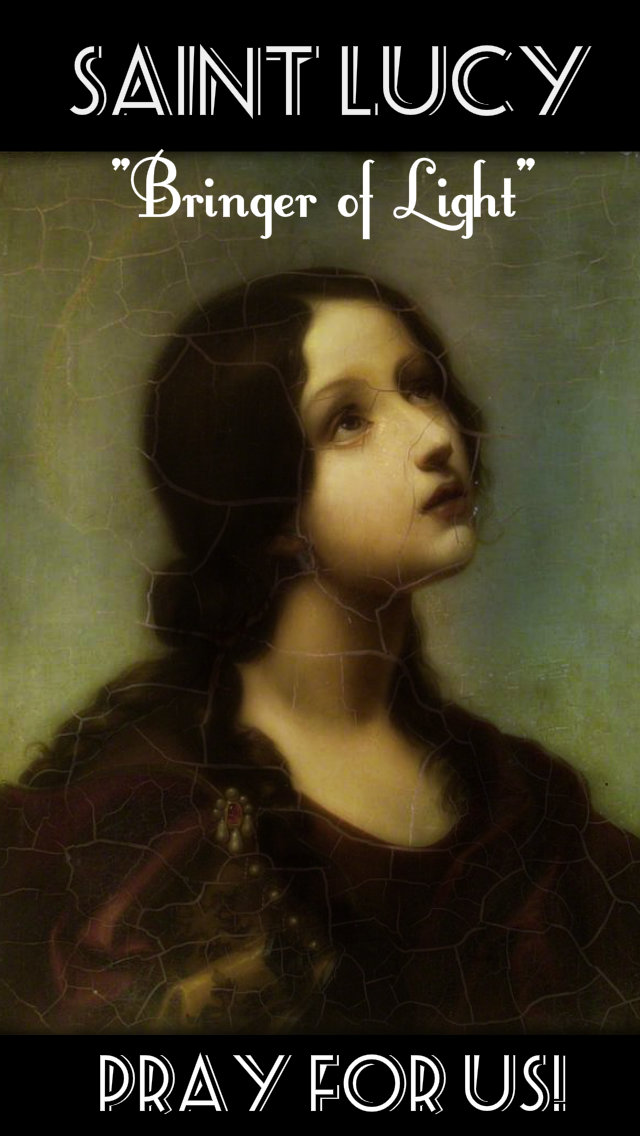

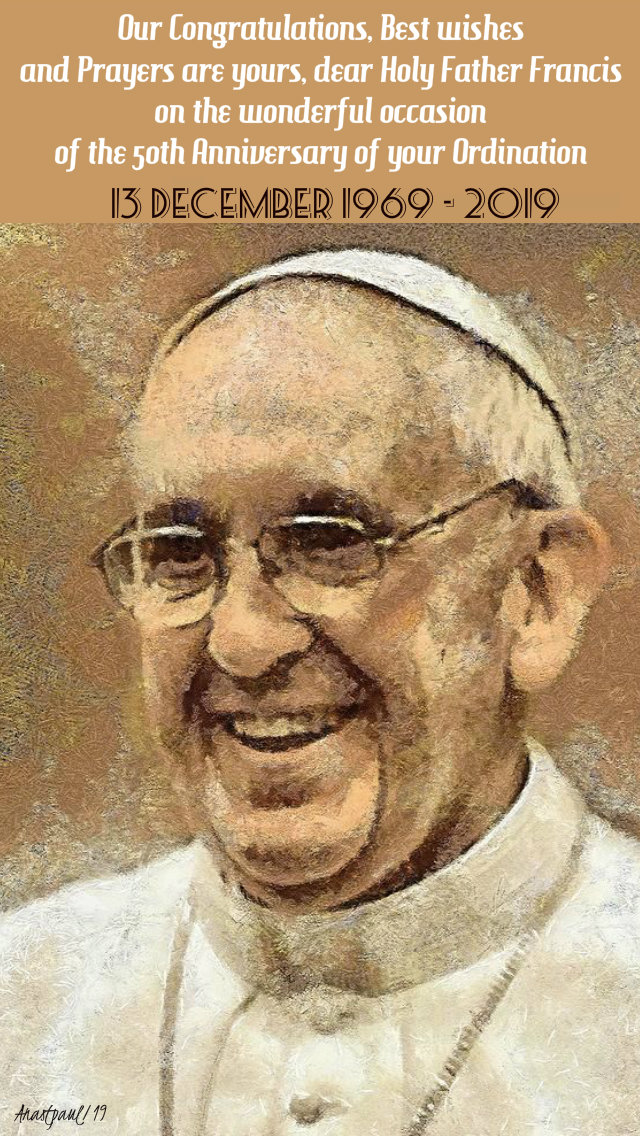
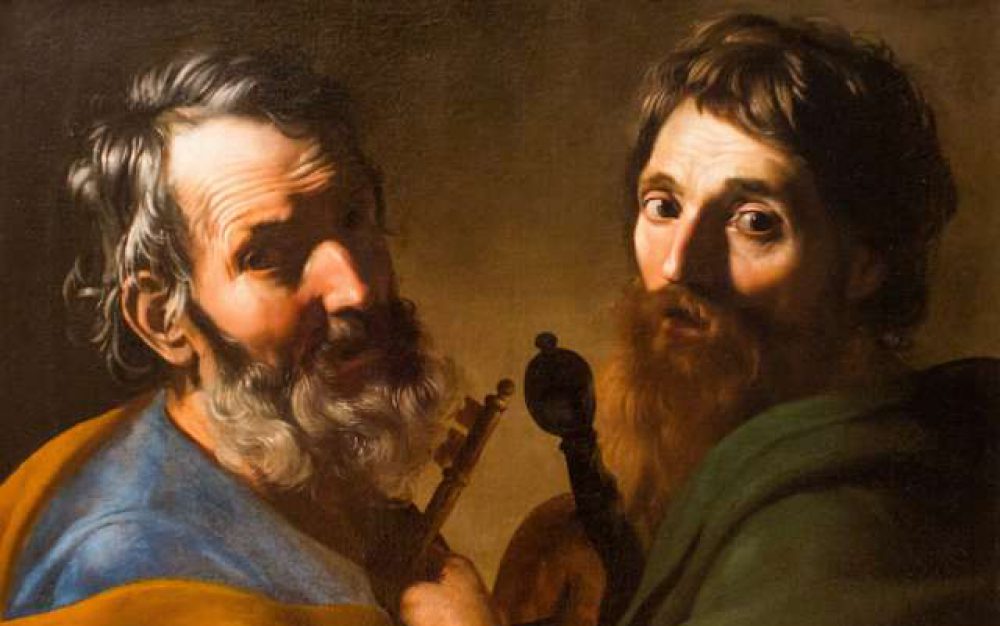






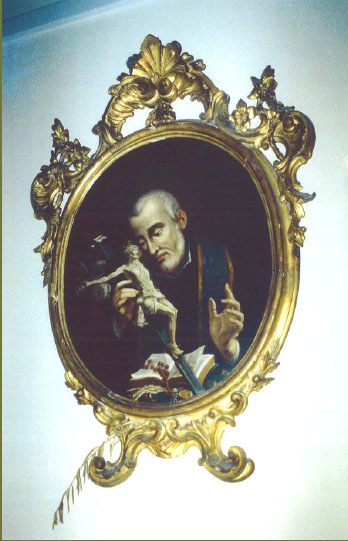



You must be logged in to post a comment.